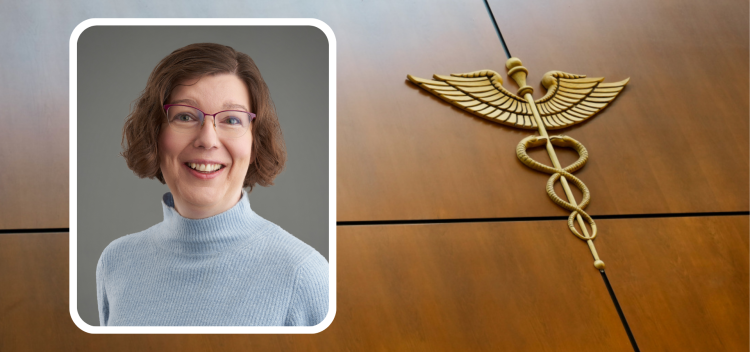Dr. Aurora Pop-Vicas seeks better measures of Long COVID brain fog
In collaboration with the UW School of Education

A new collaborative research project co-led by Aurora Pop-Vicas, MD, PhD, associate professor, Infectious Disease, and Dorothy Farrar Edwards, PhD, associate dean for research and director of health research at the University of Wisconsin (UW) School of Education, is seeking better clinical tests to measure the effects of COVID-19 post-infection (Long COVID) brain fog. Its findings could ultimately inform the development of more targeted therapies to combat the condition's debilitating impact.
The project began with a pilot study funded by a Department of Medicine (DOM) Research Pilot Award, and later received additional support through the UW Institute for Clinical and Translational Research (ICTR) Clinical & Community Outcomes Research (CCOR) Pilot program.
It aims to see if using performance-based cognitive testing could more accurately quantify the real-world impact of Long COVID-induced brain fog than the tests currently in clinical use.
For example, instead of asking a patient to count backwards by seven (part of the popular Mini-Mental State Examination), the researchers would observe and score participants as they attempted more complex tasks relevant to their daily lives, like creating a weekly schedule that balances competing needs and blocks of availability.
Someone with Long COVID-induced brain fog may have a “normal” MRI of their brain and be able to count backwards by seven, but they may not be able to complete a more in-depth, consuming, and vital task to everyday success.
“Most patients who come to see me have already been to many doctors and have had extensive medical evaluations already,” says Dr. Pop-Vicas. “Those patients are frustrated by ‘normal’ results and the experience of doctors finding nothing wrong with them, but not being able to function the way they used to.”
The study combines Dr. Pop-Vicas’s expertise in Long-COVID with Dr. Farrar Edwards’ longstanding research into the best diagnostic and treatment methods to rehabilitate patients’ functional cognition after a major event such as a stroke or a condition like Alzheimer’s disease.
“Her experience aligned perfectly with our clinical need to better understand brain fog in patients with Long COVID,” Dr. Pop-Vicas says of Dr. Farrar Edwards, who also holds an appointment in the DOM Division of Geriatrics and Gerontology.
They are assisted by doctoral student Kristen Kehl-Floberg, MS, and others.
This story has been adapted from one by the UW School of Education. Read the full original story here.